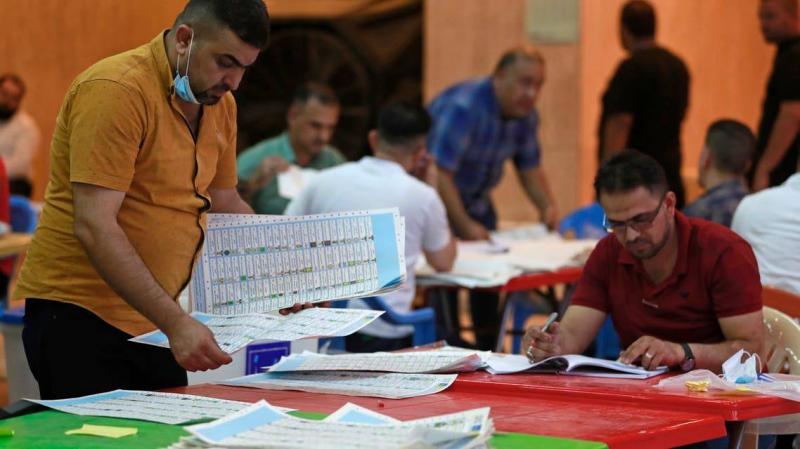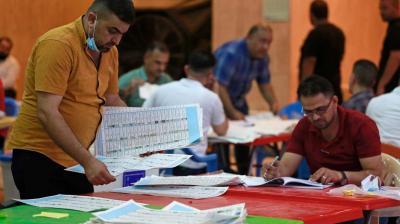The High Electoral Commission in Iraq announced today, Sunday, the number of completed appeals, while also setting the date for certifying the election results following the conclusion of the appeals process. In this regard, Imad Jamil, a member of the Commission's media team, stated that "816 appeals have been completed, with 790 rejected and 26 accepted, which are the appeals supported by evidence and documents, thus around 300 polling stations will be reopened."
He added that "these stations will include the provinces concerned with the appeals related to counting and sorting, after which the counting and sorting process will begin under the supervision of the monitors of the entities and their authorized representatives in these stations, whether in Salah al-Din, Baghdad, Basra, Erbil, in addition to other remaining provinces."
Regarding the date for certifying the results, he confirmed that "the commencement of counting and sorting depends on completing the process at all stations, as it cannot begin without finishing all procedures," noting that "the legal date for certifying the election results is after completing all details of the appeals process."
The Sadrist Movement, led by Shiite cleric Muqtada al-Sadr, achieved significant success in this electoral entitlement, reportedly winning more than 70 seats, while the Fatah Alliance, which includes factions from the Iran-aligned Popular Mobilization Forces (PMF), recorded a painful loss. However, despite these facts, observers doubt that Sadr will be able to form a government alone without negotiations with others.
**UN Security Council Commendation**
The Security Council praised the Independent High Electoral Commission for conducting technically sound elections, as well as the Iraqi government for taking sufficient preparations to prevent violence on election day. The Council welcomed the efforts of UN member states and other international organizations in monitoring the elections, notably the European Union, the Arab League, the Organization of Islamic Cooperation, and others, in addition to local Iraqi organizations.
On the other hand, the Council expressed unanimous regret over the threats of violence received by the United Nations Assistance Mission for Iraq (UNAMI) following the Iraqi elections held on October 10. The Council acknowledged the objective efforts of the UNAMI mission and the Electoral Commission in supporting this electoral process and encouraging the participation of Iraqi women. The UN mission faced widespread criticism and threats from parties and political entities that suffered unexpected defeats, manifested through protests organized within the country and campaigns by affiliated activists via social media.




